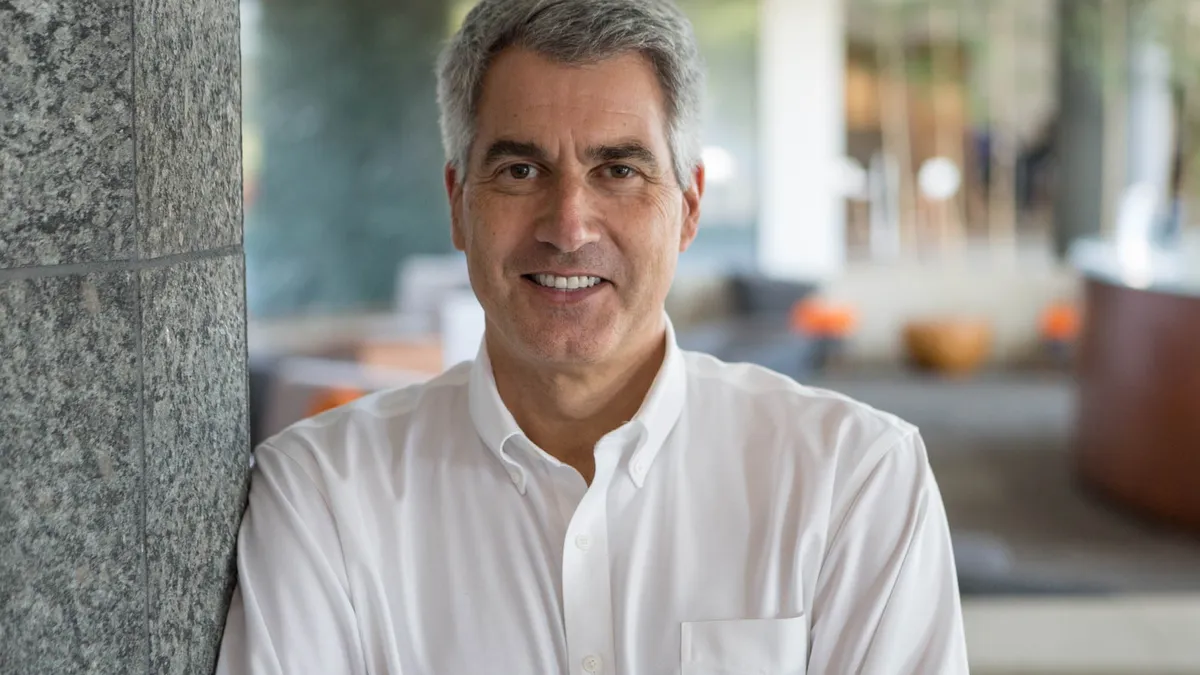Discover Financial is reviewing how to add buy now-pay later features to its debit and credit cards in a move that could give the card company's customers more installment payment options.
"We do think there might be attractive opportunities, both having it as a feature with our credit product as well as with our cashback debit product," Discover CEO Roger Hochschild said during the Goldman Sachs US Financial Services Conference on Tuesday. "So those are the things we're exploring."
BNPL as a worldwide trend has been gathering steam in recent years, growing first outside the U.S., and catching on in the American market last year, with a swarm of BNPL players now angling for market share. Meanwhile, card companies like Discover are positioning themselves to fend off the new competition, which could encroach on their transaction volumes and fees.
BNPL companies such as Klarna, Afterpay and Affirm offer buy now-pay later installment payment options mainly online, but also increasingly in stores. Generally, the option allows consumers to make an initial payment and then subsequent interest-free installments to pay off the purchase. There are often fees if they don't pay off the transaction in the four to the six-week scheduled payment period. The BNPL providers earn income from merchants.
While the credit card companies have said they aren't losing significant business to BNPL, they are paying closer attention to it.
Discover jumped on the trend in July with a $30 million investment in the Minneapolis-based BNPL company Sezzle as part of an agreement also integrating BNPL offerings into Discover's network.
In a sign that the BNPL fintech phenomenon has reached the U.S., digital payments company Square, now Block, agreed in August to pay $29 billion to buy Australian BNPL pioneer Afterpay. A Jupiter Research report released earlier this year estimated that BNPL spending could swell to $995 billion by 2026, compared with $226 billion in 2021.
When Hochschild was asked by Goldman analyst Ryan Nash at the conference whether Riverwoods, Illinois-based Discover is seeing any impact from BNPL providers, he said: "We are not. It’s something we look for very carefully ... we haven’t seen any measurable impact on receivables."
Hochschild added that there may be more hype about the impact than real repercussions. "I think it’s important to separate the talk from what’s going on," he said. There has been "talk" that there are "new generations of consumers don’t want credit cards, (that) they’re shifting to buy now pay later, [but] I think you’ve seen some reports recently that Gen Z and younger generations are actually applying for credit cards at a faster rate than previous generations."
In assessing the potential BNPL might offer Discover as a card issuer, Hochschild emphasized that the BNPL market is immature and will still morph over time, and perhaps reveal the trend's drawbacks.
"You've yet to see the real credit losses emerge and those will over time," Hochschild said. He also referenced the higher fees that merchants are currently paying to BNPL providers. "The rates that many merchants are paying are fine as they experiment, but over time, we'll start to converge with card rates."
He also noted that "it's an interest rate environment where it's virtually free to let someone pay late."
"As those dynamics change, I think the buy now-pay later market may change significantly," he said.
Nonetheless, he voiced a belief that his company will benefit from the craze. "We think there will be opportunities, some that we're capturing right now as a payments network, but there are others that may emerge over time for us as an issuer as well," he added.











